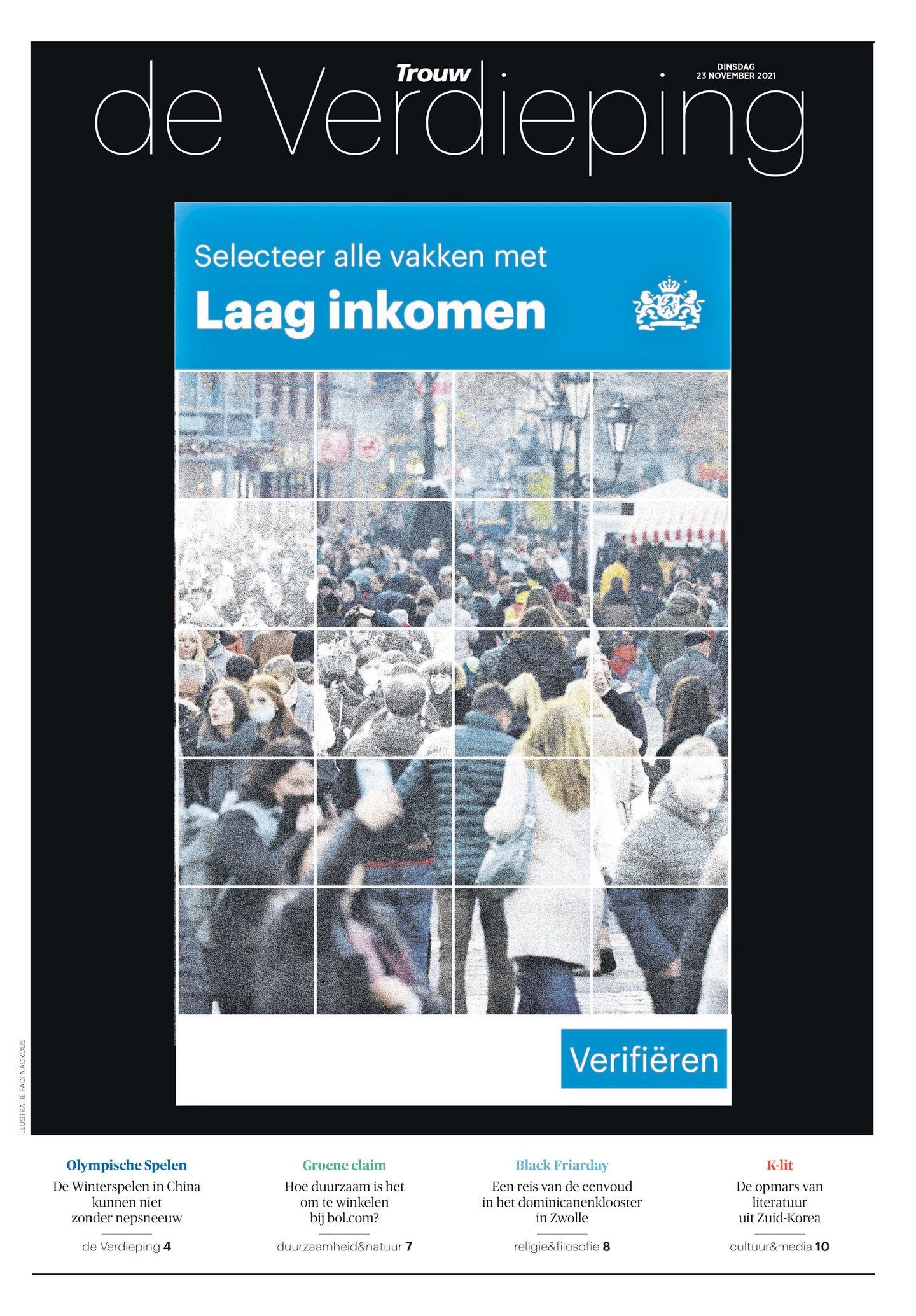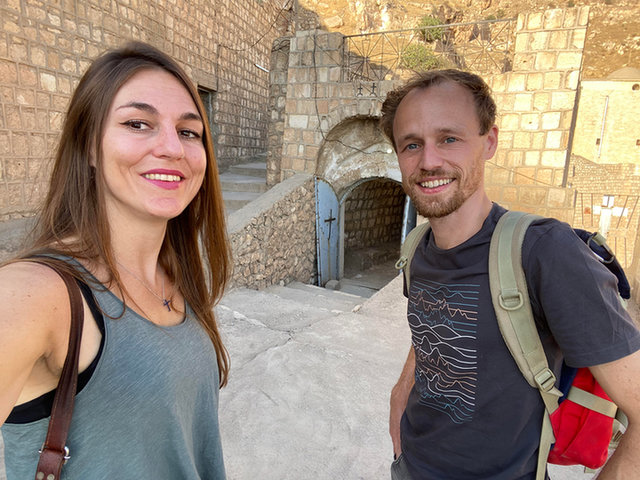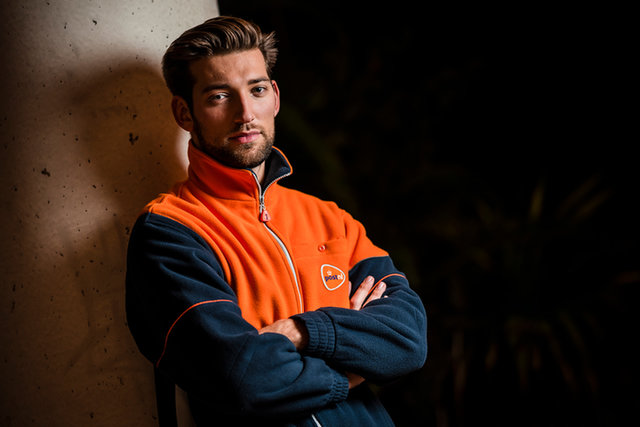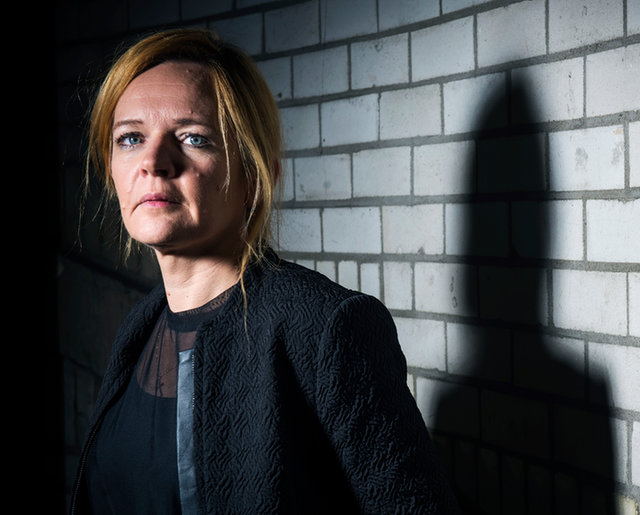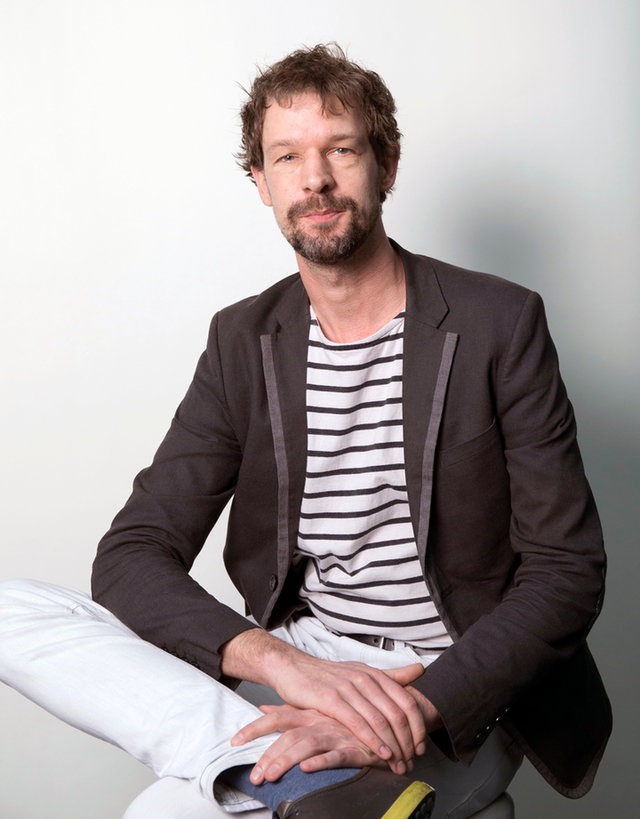News media
Why
investigativejournalism
is so important
Investigative journalism became an even more prominent part of DPG Media’s activities in the Netherlands and Belgium last year. We produced in-depth stories that often took weeks – sometimes even months – to complete, and which were highly praised. “With well-thought-out reporting, news outlets can really make a difference.”
A
clear head and free hands – that’s the idea behind the ADR-wide investigative unit, which was formed in 2020. As part of this unit, journalists from AD and our seven regional publications can immerse themselves in subjects for longer periods of time, without the distractions of the daily news cycle and the evening and weekend shifts they normally have to deal with.
On 1 March 2021, Joris Roes started his one-year tenure as head of this new team, which aims to deliver thought-provoking stories, podcasts and videos. And deliver they did, says Roes, with stories about the world behind ransomware, large-scale fraud in the horse-trading industry and a seven-part video series about fake designer clothing, to name just a few.
As far as Roes is concerned, the debate about whether news media should devote more attention to investigative journalism has long been settled. It’s more a question of how many reporters you are able – or willing – to commit to long-term projects. “We have very precise data about how our readers engage with the stories we publish. We know which stories attract the highest number of readers, and we can see exactly how long we’re able to hold the reader’s attention. All the data shows that in-depth stories are highly appreciated, and that it’s precisely those high-profile, thoroughly researched articles that draw in new subscribers.”

Joris Roes (50)
head of ADR’s investigative unit in 2021. He is also the deputy editor-in-chief of Brabants Dagblad.
“The goal we’ve set for ourselves as a team is to break an impactful story at least twice a month.”
But investigative reporters also have to stomach plenty of disappointments, Roes stresses. Because some of the work they do never turns into a finished story. “We’ve certainly had our share of failures, but that’s okay – stories are allowed to go nowhere. The trick is to decide when to pull the plug on an investigation.”
All in all, though, the team had a very successful year, with many lessons learned. “We had a great team of reporters who were given the opportunity to develop and distinguish themselves as investigative journalists for either six months or a year.” Because that’s how the investigative unit is set up: after a six- or twelve-month stint on the team, journalists return to their regular jobs, bringing back a wealth of experience that allows them to help their colleagues tackle complex stories.
On all platforms
In Belgium, News City has a permanent, four-person investigative team that operates independently of any specific medium, with a broad scope. Jonas Muylaert serves as head of the unit and also contributes stories of his own. His team produces work ‘for all platforms’ – depending on the subject, some scoops go to VTM, while others turn into newspaper articles.
Muylaert agrees that investing more time and energy in investigative journalism pays off. “Fast news doesn’t cut it anymore if you want to distinguish yourself as a news medium. The declining trust in mainstream media is also a factor in this – with well-thought-out reporting, news outlets can really make a difference.”
There’s no fixed set of criteria a subject or story needs to meet for Muylaert’s team to delve into it. “But we definitely want all our subjects to appeal to a broad audience, and it’s always important to show the human beings behind the stories we tell. Personally, my interest is piqued whenever I come across a big story that hasn’t received much attention from the major news outlets for a while.”
As an example, he mentions the reporting he did on 3M, a factory that caused serious pollution by releasing harmful chemical substances into the Western Scheldt, and which was shut down following coverage by VTM Nieuws and Het Laatste Nieuws. “If every single journalist jumps on that story, it’s hard to stand out from the crowd with a unique angle.”

Jonas Muylaert (37)
head of News City’s investigative unit since 2021. Prior to this, he served as the deputy editor-in-chief of VTM Nieuws and head of politics at De Morgen.
Full autonomy
That’s not to say that investigative reporting becomes easy once the news storm subsides. “For three weeks, I didn’t think this story would go anywhere,” Muylaert says. Whenever you get stuck like that, being part of a team and being able to vent to your colleagues can be really helpful.
It’s also essential to know that you have the confidence and support of your superiors. “We have full autonomy when it comes to choosing our subjects and deciding how we should spend our time. The goal we’ve set for ourselves as a team is to break an impactful story at least twice a month. This past year, we were more than able to accomplish that, but it’s not a goal that’s imposed on us externally – we impose it on ourselves.”
As the amount of attention being paid to investigative journalism increases, the way people think of it might also be changing. Long gone are the days of pipe-smoking old men spending six months on one story. “We have a young team,” Muylaert says, “and we also regularly produce ‘quick stories’. Sometimes it can take just a few days to get to the bottom of a subject.”
The makers and their stories
“There were times when
we thought it wouldn't
lead to anything”
The makers and their stories
Bruno Struys (37)
De Morgen journalist since 2017. Before that, he worked in various roles at Medialaan.
Brenda stoter boscolo (39)
Dutch freelance journalist who writes about the Middle East. She is also a columnist for AD Rotterdams Dagblad.
It was a winning combination of intrepid determination and thorough investigative journalism that broke the story of Belgian IS members who kept women as slaves in their homes – a special Flemish-Dutch co-production by Brenda Stoter Boscolo and Bruno Struys. Brenda Stoter Boscolo is a freelance journalist and columnist for DPG Media and author of the book The Forgotten People, about the Yezidis. She usually travels solo through the Middle East. Bruno Struys is an investigative journalist at De Morgen who often writes about the Middle East, but mostly from Belgium.
“I approached Brenda because she’s an expert on the Yezidis,” Struys recounts, “and I needed help to substantiate my hypothesis: that Belgian nationals were involved in the Yezidi genocide. It was clear to me that I didn’t have enough knowledge to dig up the kinds of stories I was after.”
Together, they travelled around Iraq for just under a month, and they found what they were looking for: women who told in detail how they had been enslaved and humiliated by Belgian IS fighters. But there were certainly challenges along the way. “We would sometimes travel around for days chasing a lead,” Stoter recounts, “and all we’d have to go on was someone’s first name.”
Luckily, the two journalists were able to lift each other’s spirits when things got tough, says Struys. “There were times when we thought it wouldn’t lead to anything. But fortunately, one of us would always keep faith.”
Stoter: “I don’t like desk journalism – I want
to go out and talk to people. But I have to admit that Bruno was able to get things done very quickly thanks to his connections. So I think we were able to learn from each other.” Their work led to resolutions recognising the fate of the Yezidis in both the Belgian and Dutch parliaments. The two journalists agree that their Flemish-Dutch collaboration – in this case between two outlets belonging to the same parent company – should inspire many more to come. Provided the right conditions are met, Struys notes. “You have to be open to collaboration, trust each other and be willing to share information. That’s not something most journalists are used to.”
Publication: Belgian IS members kept women as slaves in their homes
News medium: De Morgen
Read more
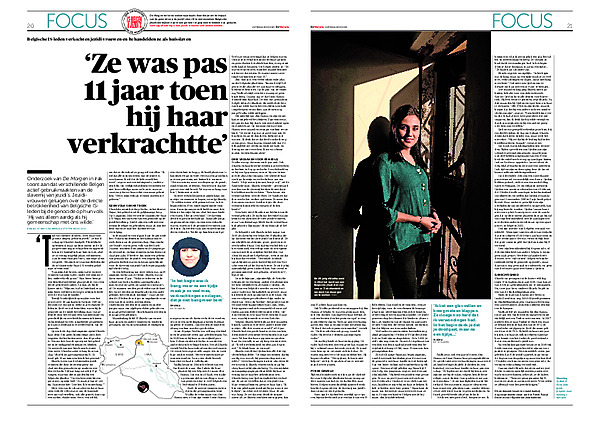
“Just like the exploited
drivers, I was working
14 or 15 hours a day”
The makers and their stories
Joppe nuyts (25)
investigative journalist at News City since 2020. Before that, he was a fact checker at DPA and worked as a journalist for VRT.
It was a bombshell story: in November 2021, investigative journalist Joppe Nuyts published hidden camera footage exposing social fraud, exploitation and child labour practices at the Belgian branch of PostNL. Nuyts received thank-you notes from exploited parcel deliverers, the PostNL depot in Wommelgem was shuttered and a large-scale criminal investigation was launched. In addition, the Belgian government is working to amend the country’s labour laws to prevent social fraud involving subcontractors.
“Of course I’m proud of this investigation,” says Nuyts, who worked as a delivery driver for just under two months to gather enough conclusive evidence. “As an investigative journalist, you have to gather evidence knowing in the back of your mind that there might be lawsuits after you go public. The evidence has to be irrefutable.” Nuyts’ plan eventually succeeded brilliantly, after a lot of hard work. “Just like the exploited drivers, I was working 14 or 15 hours a day. But I was doing it out of curiosity, not because I had to.”
In addition to delivering packages, he spent his time talking with subcontractors and desperate parcel deliverers, some of whom were children. Meanwhile, he lived in constant fear of being exposed as a journalist. The support of his colleagues at News City helped him cope. In the end, his efforts yielded more than just in-depth exposés at VTM and HLN – the legal fallout has yet to settle.
It’s a great example of a story with social impact. And perhaps that’s what Nuyts, who previously worked as a factchecker, finds most important. “I’ve noticed that more and more people now think twice before carelessly ordering another package. Because they’ve seen the questionable system behind that delivery.”
Publication: Working undercover at PostNL: Social fraud on a fairly large scale
News media: VTM Nieuws and Het Laatste Nieuws
Read more
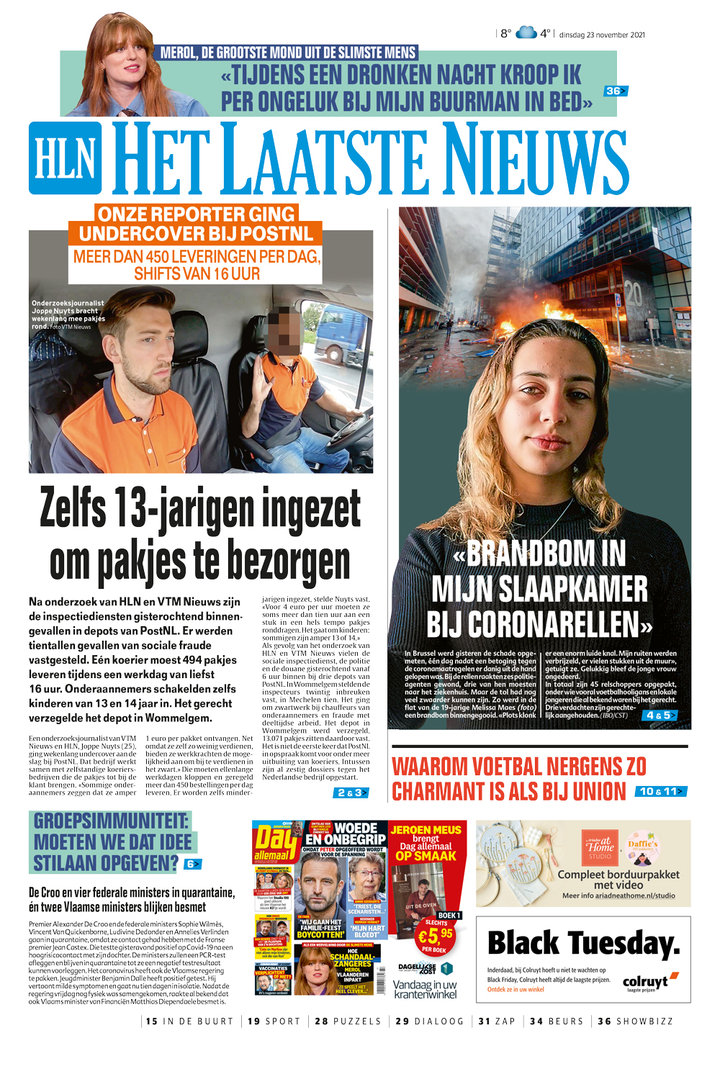
“As an investigative journalist,
there's less daily time pressure,
but the stress is actually greater”
The makers and their stories
Jorina Haspels (46)
journalist at AD Haagsche Courant since 2012, before that at AD Rotterdams Dagblad.
It took some getting used to for Jorina Haspels, going out with a camera peering out of her buttonhole. Still, as an experienced journalist at AD Haagsche Courant, she already had a penchant for sleuthing in her ‘regular job’. “But most of my sleuthing took place at my desk then, and I never worked on an article for more than a week.”
That changed when she transferred to the ADR investigative unit for a year on 1 March 2021. Her most high-profile story was her exposé on the world behind fake designer clothing and jewellery, which led her to Poland and Turkey, among other places. The result: an investigative video series plus written content, the former of which was a first for ADR Nieuwsmedia. The most important results of Haspels’ investigation were published in the spring of 2022.
“Fake designer clothing is sold openly everywhere. But where exactly does it come from? And what does the part of the industry that we don’t see look like? Those were the main questions. I loved being able to focus on one subject for so long. At the same time, there was also some frustration because I missed writing about the daily news in The Hague at first. Whenever I would come across a juicy bit of local news, I’d be champing at the bit. As an investigative journalist, there’s less daily time pressure, but the stress is actually greater. Because in the end, you want to dig up something special.”
Her time at the investigative unit paid off on several fronts. “We’re seeing a growing desire among news media to stand out with solid stories and productions. Personally, I saw my foray into investigative journalism as a great opportunity to develop myself more broadly. Working with the video editors, thinking in images, getting stuck into complex subjects, tracking criminal activity – it was a huge learning experience.”
Of course, going down the rabbit hole of the criminal underworld sometimes takes you to seedy places, and investigative journalists don’t always receive a warm welcome. But Haspels isn’t easily fazed. “As a reporter for AD Haagsche Courant, one of my beats was Duindorp, a working-class neighbourhood in The Hague. Suffice it to say I’ve experienced my fair share of intimidation.”
Publication: THE FAKE DESIGNER CLOTHING INDUSTRY
News media: AD and the regional publications (ADR)
Read more
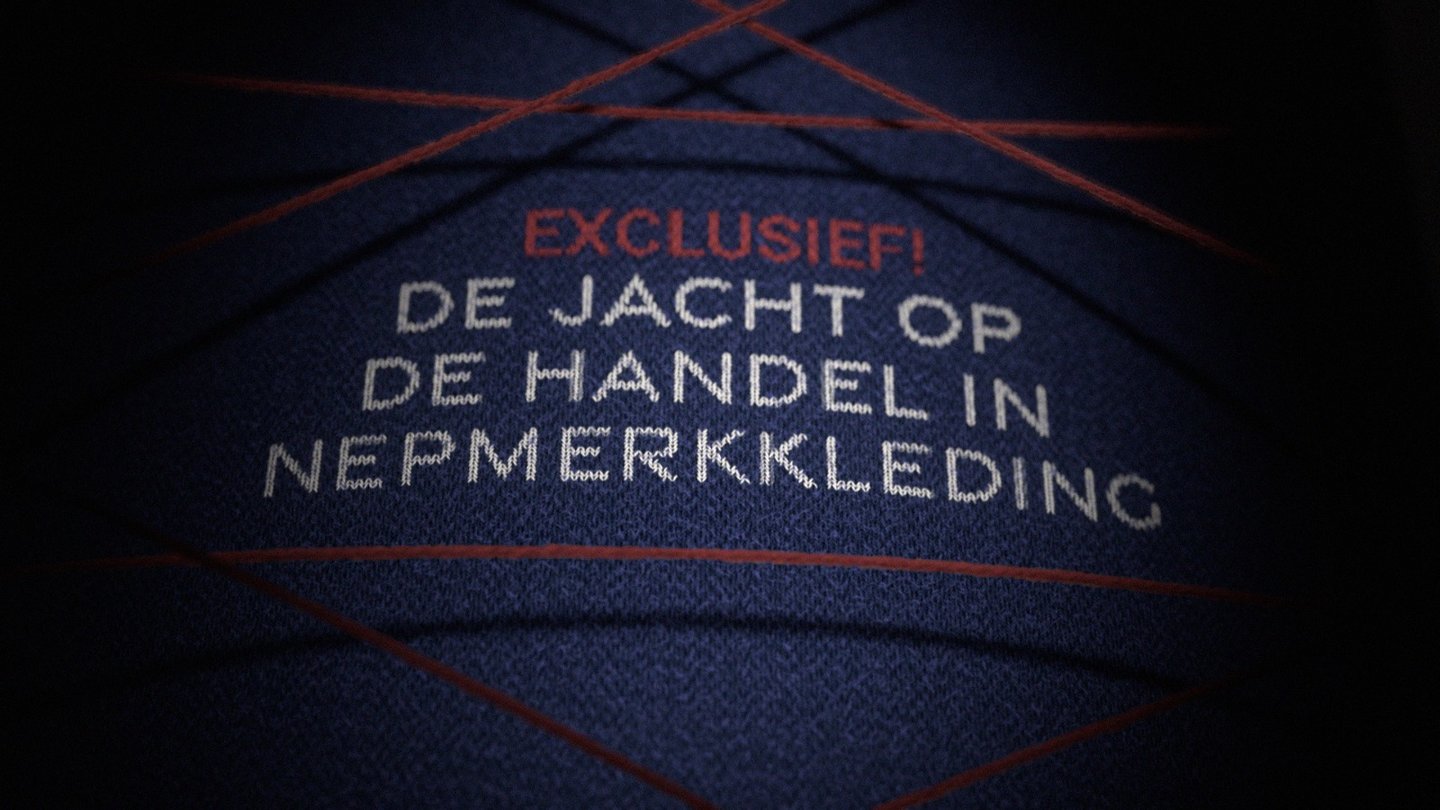
“If the government is adamant
that your story is nonsense,
There's probably something there”
The makers and their stories
Jan Kleinnijenhuis (41)
TROUW JOURNALIST SINCE 2007
He was named Journalist of the Year in 2019 (together with Pieter Klein), and he’s known as ‘the man who exposed the childcare benefits scandal’. Through his investigative reporting, he continued to make headlines in 2021 (for instance with his follow-up on the benefits scandal, which revealed that the Tax Authority had mainly pursued low-income households).
All in all, you’d be forgiven for thinking Jan Kleinnijenhuis’s professional life is an endless succession of victory parades. But reality is far less glamorous. “The childcare benefits scandal was nowhere near as big a story back when I was most intensely involved with it,” Kleinnijenhuis says.
At the time, his investigation was mostly time-consuming and frustrating, especially when he became the target of a government smear campaign. Press officers tried to ruin his reputation by claiming that he was publishing unseemly stories about things that had never happened. But in the end, an enormous cesspool of government corruption was revealed and several politicians stepped down. A personal victory for Kleinnijenhuis? Not exactly.
“It does mean that the people who suffered as a result of the government’s actions, and who had to fight that same government for years, finally got recognition. The fact that the scandal caused Menno Snel to step down as deputy minister and the Cabinet to resign in January 2021 doesn’t interest me.
As an investigative journalist, it’s my job to publish the facts. If you have lingering questions after you’ve worked on a story, if you’re convinced that you need to dig deeper to find out what’s really going on – that’s when you know you’re onto something. I also hope that more journalists will learn to trust their instincts.”
Kleinnijenhuis feels fortunate to work for a newspaper that allows him to do just that. “Trouw gives anyone with a well-thought-out idea the time and space they need to really get to the heart of the matter,” says Kleinnijenhuis.
He also emphasises that he never operated solo. “Deputy editor-in-chief Martijn Roessingh was my go-to person at Trouw when I had a question or needed to blow off steam, and during my collaboration with Pieter Klein (then a journalist for RTL Nieuws) we would also constantly bounce ideas off each other. ‘What am I missing here?’, ‘Where can we verify this?’ – asking those kinds of questions can prevent you from developing tunnel vision.”
At Trouw, Kleinnijenhuis now coaches young journalists who want to hone their research skills. One of his tips: “If the government is adamant that your story is nonsense, there’s probably something there.”
Publication: Tax Authority mainly pursued low-income households
News medium: Trouw
Read more
